 Shocking moments when PLA's weapons open fire
Shocking moments when PLA's weapons open fire Famous Lanzhou beef noodles
Famous Lanzhou beef noodles Armed Police hold anti-terrorism drill in SE China's Xiamen
Armed Police hold anti-terrorism drill in SE China's Xiamen Harbin Int'l Ice and Snow Festival opens
Harbin Int'l Ice and Snow Festival opens 'Jin' named the word of the year by cross-strait netizens
'Jin' named the word of the year by cross-strait netizens Chinese scientific expedition goes to build new Antarctica station
Chinese scientific expedition goes to build new Antarctica station
 Chinese naval escort fleet conducts replenishment in Indian Ocean
Chinese naval escort fleet conducts replenishment in Indian Ocean 17th joint patrol of Mekong River to start
17th joint patrol of Mekong River to start China's moon rover, lander photograph each other
China's moon rover, lander photograph each otherWASHINGTON, Jan. 9 -- Japanese Prime Minister Shinzo Abe's recent homage at a controversial war-linked shrine mirrors the unrepentant view of Japan's wartime aggression and undermines his stated aim to increase Japan's engagement in safeguarding world peace, Chinese Ambassador to the U.S. Cui Tiankai said Thursday.
In an opinion piece published on The Washington Post website, Cui said the dispute over Abe's visit to the Yasukuni Shrine is about more than symbolism because it reveals his real intention for Japan's future and casts doubt upon his willingness to build an atmosphere of trust, respect and equality in East Asia.
On Dec. 26, Abe visited the shrine that honors Japan's war dead including 14 Class-A convicted war criminals of WWII, triggering strong protests and indignation from its neighbors, including China and South Korea, which had suffered from Japan's brutal military aggression.
Those war criminals include former prime minister Hideki Tojo, who launched the attack on Pearl Harbor and started the war in the Pacific that cost millions of lives, and commanders of the Nanking massacre in China in which some 300,000 people were killed.
"The recent homage cannot be separated from the prime minister's denial of Japan's wartime atrocities, and it colors his initiative to revise Japan's constitution to transform its Self-Defense Forces into a military force capable of projecting power outside Japan," wrote Cui, former Chinese ambassador to Japan from 2007 to 2009.
"This aggressive posture imperils regional security and economic prosperity," Cui said. "Japan's acceptance of and repentance for its war crimes would build a foundation for peace and security in the world's most economically dynamic region."
The Yasukuni Shrine is "ground zero for the unrepentant view of Japan's wartime aggression" because it imparted a spiritual dimension to Japanese militarism and colonial rule during WWII and became "a revered living symbol of that militarism," the Chinese diplomat wrote.
He noted that the shrine includes a war museum, Yushukan, whose deliberately revisionist narrative of WWII lauds "Japan's salvage of Asian countries from the colonial rule of Western countries" and details "crimes committed by the United States."
"The Japanese government's attitude toward this shrine is a test of its ability to understand and confront its legacy of militarism and war crimes. Because Abe is prime minister, his homage has implications inside and outside Japan. It is by no means the act of a private individual," Cui said.
Abe's actions undermine his stated aim to increase Japan's engagement in safeguarding world peace, while his government's efforts to accelerate Japan's military buildup and his initiative to rewrite Japan's largely U.S.-drafted pacifist constitution "are disconcerting," particularly in the context of Abe's assertions that the term "aggression" has yet to be defined and that no evidence exists proving that "comfort women" were forced into sexual servitude during the war, Cui said.
"Japan can embrace a constructive and cooperative future for East Asia by discarding militarism. Ensuring the continued peace and prosperity of our part of the world is in the best interest of all people and countries in this region. Abe is threatening the hard work we have all done to make East Asia the growth engine of the global economy," he said.
Cui urged Japanese leaders to listen to their neighbors and abandon confrontational rhetoric, so that Japan can join with other countries including China, South Korea and the United States to continue to build prosperity and stability for all of Asia.
"The alternative is simply untenable," he said.
 In photos: Ten 'tuhao' devices in 2013
In photos: Ten 'tuhao' devices in 2013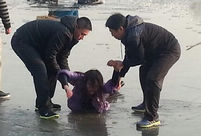 College students saved from an ice hole by brave citizens
College students saved from an ice hole by brave citizens Gallery: Top 10 box office hits in 2013
Gallery: Top 10 box office hits in 2013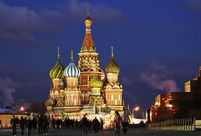 Beautiful churches around the world
Beautiful churches around the world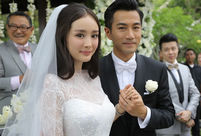 Yang Mi, Hawick Lau hold wedding in Bali
Yang Mi, Hawick Lau hold wedding in Bali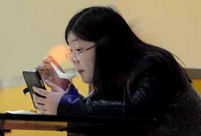 'Phubbing' people seen everywhere
'Phubbing' people seen everywhere World's biggest snack shop in China
World's biggest snack shop in China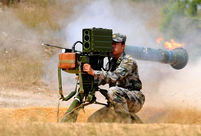 Shocking moments when PLA's weapons open fire
Shocking moments when PLA's weapons open fire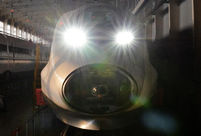 World's fastest train CRH380A assembled in E China
World's fastest train CRH380A assembled in E China Top 10 box office hits in 2013
Top 10 box office hits in 2013 In photos: Ten 'tuhao' devices in 2013
In photos: Ten 'tuhao' devices in 2013 Real estate tycoon measures PM2.5
Real estate tycoon measures PM2.5  'I am on a journey to lose weight'
'I am on a journey to lose weight' 'Cute' artifacts exhibited in Nanjing Museum
'Cute' artifacts exhibited in Nanjing Museum Advanced Chinese weapons that stepped into spotlight in 2013
Advanced Chinese weapons that stepped into spotlight in 2013Day|Week|Month